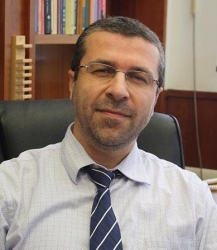Ideally, the Adventist philosophy of education drives practices and policies in Adventist education. We can reduce the gap between theory and practice by understanding the meaning of Adventist education and reevaluating its practice. Adventist education should be:
- Academically Competitive
Education has a redemptive purpose, but we must not undermine the academic part of education.
Adventist schools should strive to become competitive academically because it is not enough to have a distinctive redemptive element of education. Education has to include rigorous and intellectual scientific inquiry of the existing world including a high level of scholarship and a research component both for faculty and for students.
Education can be redemptive only if it remains first education. Redemption does not exclude reason and scientific exploration. On the contrary, redemptive principles include holistic views of human beings. - Holistic
Adventist education emphasizes the idea that body, soul, and spirit have to be developed simultaneously. The goal of education is holistic well-being or flourishing of human being. Overstressed, overloaded teachers and students and administrators cannot participate in flourishing. Flourishing is impossible without the balanced use of intellectual, mental, spiritual, emotional and physical faculties – all under the umbrella of the Lordship of Christ. - Existential
Adventist education is existential; it continuously asks basic meaning questions: Who are we, where are we coming from, where are we going? Every new generation has to ask these questions in dialogue with contemporary cultural elements. Students themselves have to seek for answers in the comfortable atmosphere of dialogue and exploration with teachers.
The isolation of Adventist education is detrimental to its purpose and mission goals. We have to enter into dialogue with other religious and philosophical systems, and this can be done on the existential level because all human beings struggle with the same basic questions. - Interactive and Engaging
Adventist education should have passion for political activism, social justice, community needs, and hearing of people’s voices. The social activism of Adventist intellectuals, students, administrators is mandatory for God’s calling of communicating the Gospel in the complex world. This communication should be practical and applied. We cannot become fearful of political and cultural influences and isolate ourselves from the huge potential of engagement.
How to Attain These Goals
To attain these goals, Adventist education has to be affordable. The Adventist Church administration should increase subsidy at all levels because when we invest in education we invest in the redemption of souls and the future of the Kingdom of God.
Also, our educational institutions should support transformational leadership. Our schools need visionary, transformative leaders, leaders who will use their strengths for the benefit of the academic community and for the purpose of building up and recognizing the strengths of every community member. We can produce the next generation of knowledge explorers and makers only if we seriously commit ourselves to transformational academic leadership. The renewed sense of integrity, competence, competitiveness, and strategic vision will revitalize Adventist academic institutions and send a strong message to the world that Adventist education still matters.
Additional Reading
Towards the Possible Integration of Psychology and Christian Faith: Faculties of Human Personality and the Lordship of Christ

